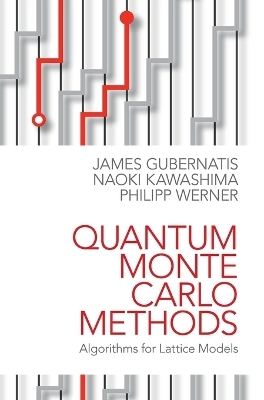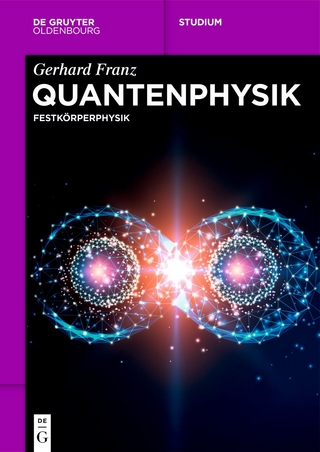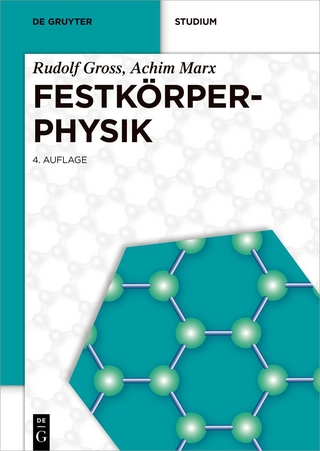
Quantum Monte Carlo Methods
Cambridge University Press (Verlag)
978-1-107-00642-3 (ISBN)
Featuring detailed explanations of the major algorithms used in quantum Monte Carlo simulations, this is the first textbook of its kind to provide a pedagogical overview of the field and its applications. The book provides a comprehensive introduction to the Monte Carlo method, its use, and its foundations, and examines algorithms for the simulation of quantum many-body lattice problems at finite and zero temperature. These algorithms include continuous-time loop and cluster algorithms for quantum spins, determinant methods for simulating fermions, power methods for computing ground and excited states, and the variational Monte Carlo method. Also discussed are continuous-time algorithms for quantum impurity models and their use within dynamical mean-field theory, along with algorithms for analytically continuing imaginary-time quantum Monte Carlo data. The parallelization of Monte Carlo simulations is also addressed. This is an essential resource for graduate students, teachers, and researchers interested in quantum Monte Carlo techniques.
James Gubernatis works at the Los Alamos National Laboratory. He is a Fellow of the APS and was elected Chair of the APS' Division of Computational Physics. He has represented the United States on the Commission of Computational Physics of IUPAP for nine years, and has chaired the Commission for three years. Naoki Kawashima is a Professor at the University of Tokyo. He is a member of the Society of Cognitive Science, and has been a member of the Steering Committee for the Public Use of the Supercomputer at the ISSP for the last 15 years. He received the Ryogo Kubo Memorial Prize for his contributions to the development of loop/cluster algorithms in 2002. Philipp Werner is a Professor at the University of Fribourg. In 2010, he received the IUPAP Young Scientist Prize in Computational Physics for the development and implementation of quantum Monte Carlo methods which transformed the study of interacting electrons in solids.
Part I. Monte Carlo Basics: 1. Introduction; 2. Monte Carlo basics; 3. Data analysis; 4. Monte Carlo for classical many-body problems; 5. Quantum Monte Carlo primer; Part II. Finite Temperature: 6. Finite-temperature quantum spin algorithms; 7. Determinant method; 8. Continuous-time impurity solvers; Part III. Zero Temperature: 9. Variational Monte Carlo; 10. Power methods; 11. Fermion ground state methods; 12. Analytic continuation; 13. Parallelization.
| Erscheint lt. Verlag | 2.6.2016 |
|---|---|
| Zusatzinfo | 37 Halftones, unspecified; 23 Line drawings, unspecified |
| Verlagsort | Cambridge |
| Sprache | englisch |
| Maße | 179 x 253 mm |
| Gewicht | 2480 g |
| Themenwelt | Naturwissenschaften ► Physik / Astronomie ► Festkörperphysik |
| Naturwissenschaften ► Physik / Astronomie ► Quantenphysik | |
| ISBN-10 | 1-107-00642-2 / 1107006422 |
| ISBN-13 | 978-1-107-00642-3 / 9781107006423 |
| Zustand | Neuware |
| Haben Sie eine Frage zum Produkt? |
aus dem Bereich


